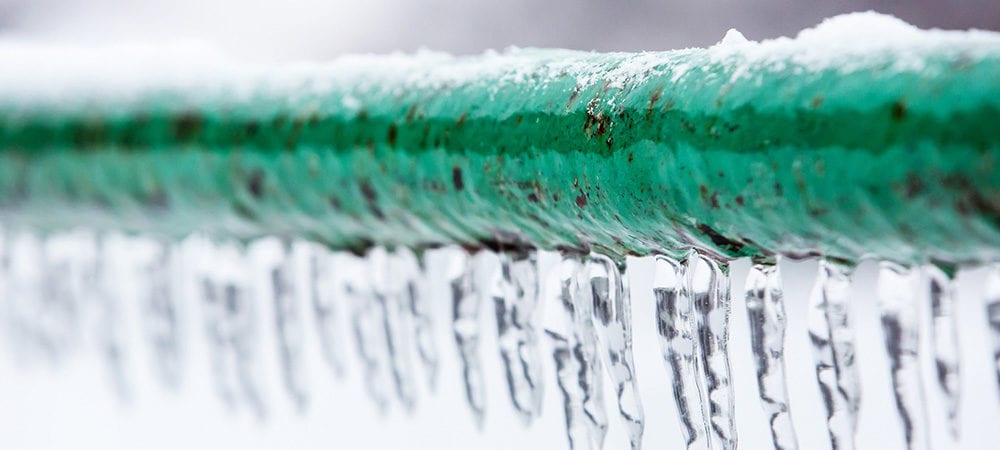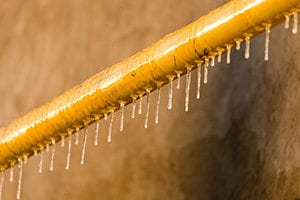
08 Oct How to Prevent Pipe Bursts
Prevent Pipe Bursts
 With cold weather around the corner, one of the biggest plumbing incidents is a burst water or sewerage pipe. This problem causes severe damage to the property, furniture, and fixtures. It also puts ones home at high risk of such issues as the growth of mildew, contamination of food and water, and the growth of water-borne bacteria. Most pipe bursts happen during the winter season as the water freezes inside the pipes, which expands, creating immense pressure which then causes the pipes to burst. It only takes a small pipe leak to cause flooding mayhem at home, it is good to take proactive steps to prevent the catastrophe from happening. Here are a few ways to prevent pipe bursts.
With cold weather around the corner, one of the biggest plumbing incidents is a burst water or sewerage pipe. This problem causes severe damage to the property, furniture, and fixtures. It also puts ones home at high risk of such issues as the growth of mildew, contamination of food and water, and the growth of water-borne bacteria. Most pipe bursts happen during the winter season as the water freezes inside the pipes, which expands, creating immense pressure which then causes the pipes to burst. It only takes a small pipe leak to cause flooding mayhem at home, it is good to take proactive steps to prevent the catastrophe from happening. Here are a few ways to prevent pipe bursts.
1. All pipes should be adequately insulated
Any exposed pipes may freeze, even if the weather is not very cold. The only way to keep them at a safe temperature is to insulate every inch of the pipes inside and outside of the house. One of the most conventional ways is the use of foam insulation. A plumber installs it by wrapping the foam around the pipe. He or she can also insulate pipes with heat tape or thermostatic heat cables.
2. Seal any leaks and cracks
Even with insulation, pipes could freeze if they are coming in contact with the cold air. Cold air leaks are common around dryer vents, electrical wiring, and where pipes pass through walls. It takes a tiny crack to compromise the insulation around home and pipes. These spaces can be filled using caulk. It is recommended that house owners have their homes inspected for cracks before the winter season and any problems corrected.
Keep a faucet or two running slowly when outdoor temperature gets extremely cold
During winter months, it is advisable to have one or two faucets dripping slowly. One may place a container underneath the faucet to collect the dripping water. The water drip ensures that there is a flow in pipes that are likely to freeze. The flow lowers the pressure inside the pipe which reduces the chances of pipe leaks or bursts.
3. Direct heat to the pipes wherever possible
There are those cold spots in the house especially the corners of the room. The piping at these points is more likely to freeze than any other part of the house. One can periodically direct a stream of warm air at the location using an electric heater or a fan to distribute the hot current. It is a good idea to open the interior doors most of the time during the winter season. Doing so enhances the circulation of warm air across the house and gets rid of cold spots which may increase the chances of pipe bursts.
In the same breath, it is essential to keep garage doors closed in the winter especially if some of the pipes run through the garage.
4. Keep the heat on at all times
Most people turn down their heaters when they are not in the house. Unfortunately, during the time, temperatures could get so low that the pipes in the house could freeze predisposing you to pipe bursts. While shutting down the heater helps keep the energy bills low, it may end up being expensive when dealing with pipe bursts. It is recommended that the house owner maintains the temperature at about 50 degrees fahrenheit at all times even when there is no one in the house. Maintaining the temperature is only likely to add a few dollars to the monthly energy bill but will protect your pipes from bursting.
5. Disconnect the water hose from the outside faucet
The water hose is also likely to be damaged by freezing water. Once the tap is shut, there is water that remains in the hose. The water is likely to freeze and crack the walls of the hose. It is essential to remove the hose from the outside tap and drain all the water in the pipe to prevent pipe bursts.
If you are likely to be out of home for some time, it is advisable that you shut off the water supply from the main line. You can then open one of the faucets to get rid of the water that may still be in circulation after shutting down the supply. This leaves the pipes empty and reduces a likelihood of pipe bursts from freezing when you are away from home. However, if the house has a sprinkler system in place, it is not advisable to shut off the water from the main line, leave the water supply to the sprinkler system running.
6. Keep the kitchen cabinet doors open
Most of the kitchen sink systems are placed on an outside wall. This exposes the piping around the sink to higher temperature drops than the rest of the piping system. This means that you are likely to notice pipe leaks in the kitchen pipes than in any other piping system. To prevent this, it is advisable to leave the doors of the kitchen cabinets located underneath the sink open. Doing so allows warm air to circulate inside the cabinet and prevent the pipes from freezing. It is advisable to select a kitchen faucet as the one to keep open during winter. This is because the kitchen most likely location for pipe bursts from pressure build during winter.
7. Conduct periodic inspections and maintenance
 It is essential to have the plumbing system inspected and maintained from time to time. A licensed plumber is able to notice any pipe leaks in the piping system and correct them before they cause a mess at home.
It is essential to have the plumbing system inspected and maintained from time to time. A licensed plumber is able to notice any pipe leaks in the piping system and correct them before they cause a mess at home.
Contact your trusted Ben Franklin Tyler plumber today with all of your winter plumbing needs!
Benjamin Franklin Plumbing Tyler serves the East Texas cities of Kilgore, Longview, Tyler, and Whitehouse with a team of certified plumbers. In addition to emergency plumbing repair, some of the plumbing services provided by the company include faucet repair, drain services, toilet repair, plumbing fixture installations, tub and shower installations, kitchen sink repair, faucet installation, water heater repair/replacement, and garbage disposal replacement. Call us today at (903) 730-6611 to schedule an appointment!

